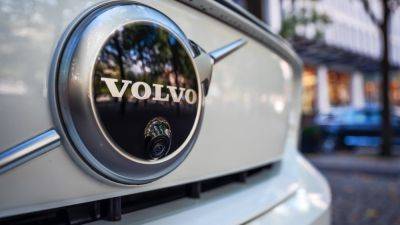Volvo Cars cuts margin and revenue aims after ditching electric vehicle target
Volvo Cars on Thursday scaled back its margin and revenue targets, after announcing it was no longer targeting 100% all-electric vehicle sales by 2030.
The Swedish automaker, which is majority-owned by China's Geely Holding, said it is now targeting a 2026 EBIT (earnings before interest and taxes) margin goal of 7-8%, down from "above 8%," due to "increased complexity especially in relation to global trade and tariffs."
It added that it was now seeking to "continue outgrowing the premium car market until 2026," rather than sticking to its previously announced revenue target of between 500 billion Swedish kronor ($48.6 billion) and 600 billion kronor.
Ever-shifting international trade disputes and tariffs have become a major headache for automakers as they navigate geopolitics between the European Union, China and the U.S., while also seeking a competitive edge in a market dominated by the EV transition.
Volvo Cars shares were 3.2% higher in early afternoon deals following a 10% decline so far this week.
The firm is holding its Capital Markets Day in Gothenburg, Sweden where it is discussing its product plans for the coming years with a firm focus on shifting to electric and plug-in hybrid models. Volvo Cars has five fully-electric models on the market, along with five in development.
However, on Wednesday it revealed that it would no longer target 100% electric vehicle sales by 2030 — which it defines as "cars with a cord" — instead looking for a 90-100% range, allowing mild hybrid models to continue to be sold. Mild hybrids have internal combustion engines which utilize some electric assistance.
Volvo cited consumer demand, a slower-than-expected rollout of charging infrastructure, a withdrawal of government incentives in some







